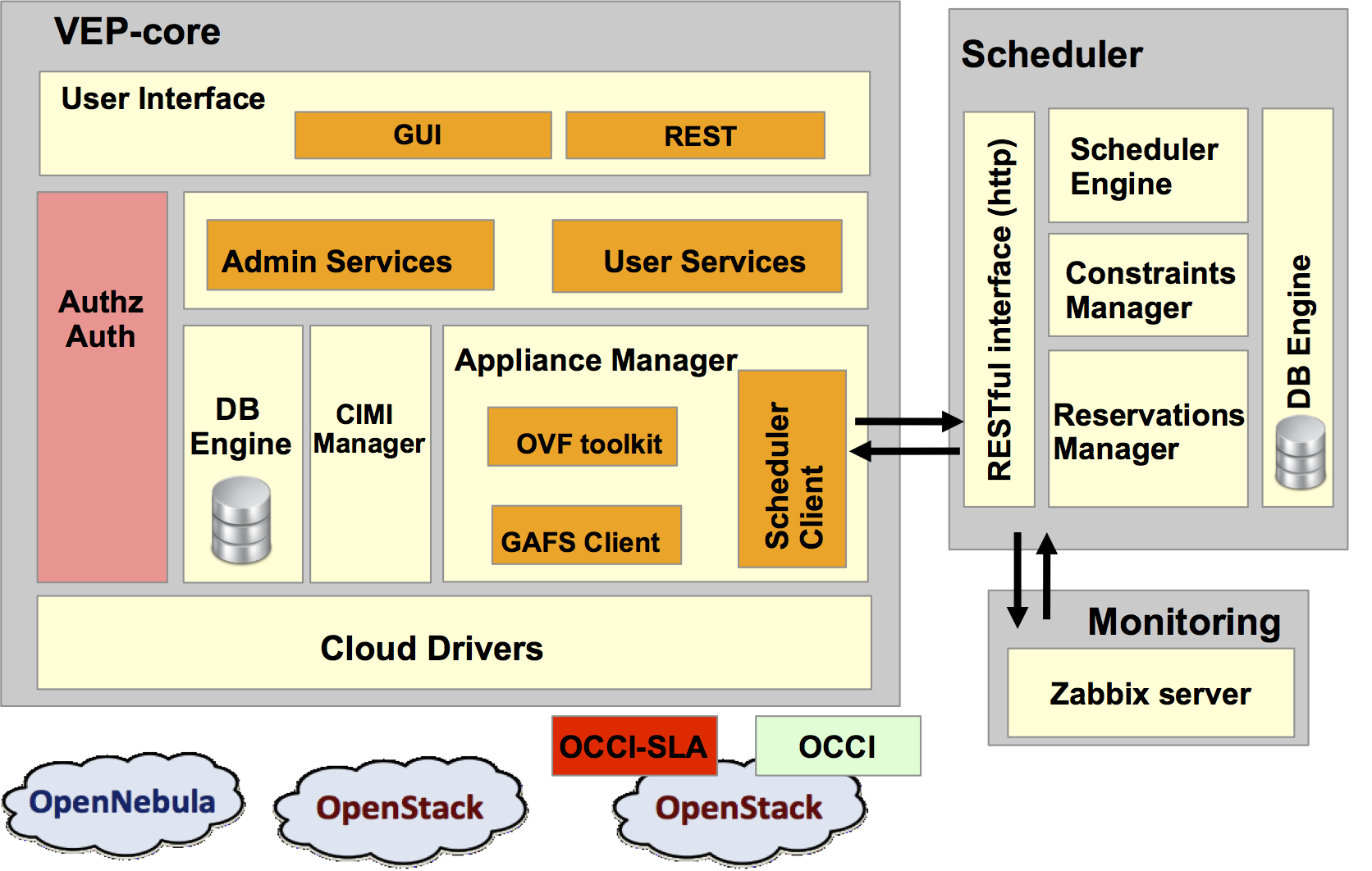VEP-S SLA-Aware Management of Heterogeneous Data-Centers is a new activity funded by EIT ICT Labs Future Cloud activity line.
Partners of this new activity are Inria (ccordinator), Intel and Reply.
This activity will demonstrate for the first time that SLA-aware open standards can be used to manage multiple heterogeneous clouds; an innovation dismantling this perceived barrier to more widespread cloud computing. The innovation objective is a powerful open-source platform for application deployment under SLA constraints, supporting and integrating open standards for a high degree of interoperability. The target of this extensible and customizable solution is the industry and public sector.
The outcome will be an increased interoperability and customer-focused SLA driven dependability across multiple, heterogeneous cloud data centers. This will open new market opportunities for SMEs that can access a wider range of Cloud offerings supporting business-like requirements for their applications. Industry and public sector can leverage the platform to more easily manage their datacenters via standard interfaces. SLA-guaranteed deployments will become possible and automated real-time management a reality.
The VEP-S system, which consists of the Virtual Execution Platform (VEP) component with support for OCCI, integration of the OCCI SLA extension, and the monitoring system.
The Virtual Execution Platform (VEP) is in charge of provisioning hardware resources from Cloud providers and to deploy and run distributed applications submitted by users under the control of a negotiated Service Level Agreements (SLA). VEP interacts with the underlying IaaS manager to create application networks, register VM images, generate VM templates and manage the lifecycle of virtual machines.
Users interact with VEP to deploy and manage their applications as a whole, while administrators use it to configure the IaaS cloud and limit the user access rights.
The OCCI SLA API extends the OCCI Core Model to implement a SLA management API. This API allows for the creation and management of resources related with the realization of agreements between an OCCI-enabled cloud service provider and potential consumers of the provider’s resources. In the context of the VEP-S project, this extension will be used to describe SLA terms and map them with the resources and services a cloud provider can offer.
The monitoring component will provide three types of services: monitoring the IaaS resource manager to check whether the machine has started or not; monitoring the IaaS to check the usage of the resources; monitoring on the VM (monitoring agent in the VM and activated by the user). The technology used for the monitoring is Zabbix.

